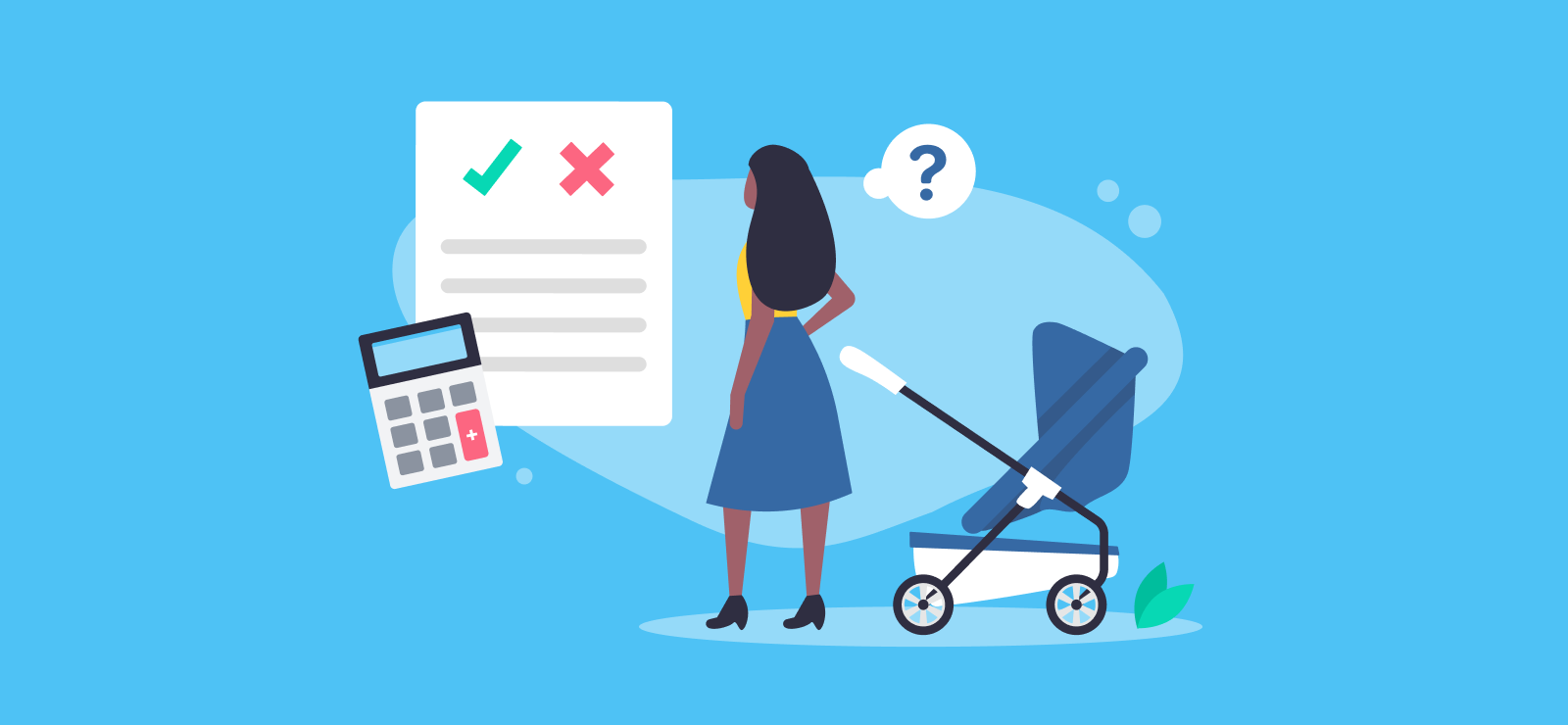

Buying A House When You’re Self-Employed
Buying a house is an overwhelming process for many of us, but it can be particularly tricky if you’re self-employed, especially if you’re dealing with mortgage lenders who view self-employed income as less dependable than those employed with a fixed salary. In this article we go over the house-buying process for self-employed people.
How can I prove my income to a mortgage lender if I’m self-employed?
Like anyone applying for a mortgage, you’ll need to provide documents which demonstrate you can afford the monthly repayments. The way you do this depends on your business structure! In most cases you’ll need to provide a set of accounts showing how the business performs financially – which will normally need to be verified by a professional, such as your accountant.
Although each lender might have specific requirements depending on your business structure, our table shows what documents you’re likely to need as part of your mortgage application.
| Contractor/Freelancer | You’ll need to provide copies of your most recent contracts (showing your rates), along with your SA302 tax calculation and overview. |
| Sole trader/Landlord | SA302 tax calculations and tax overviews for the last two years (at the very least). Most lenders are happy with you printing these calculations from your HMRC online account. |
| Limited Company | Owning a limited company usually means you’ll need to show your tax calculations, tax year overview, and company accounts for the last one to two years – this depends on the lender! They’ll also look at the personal income you take from the company, such as a basic salary and any dividend payments you get. |
| Partnership | Like the others, you’ll need your SA302 tax calculations and tax year overviews. Lenders will also look at your share of the profits to see how much you make, rather than how much the partnership makes (so they may need the partnership’s tax calculation, accounts, and any partnership agreement). |
How much can I borrow for my mortgage if I’m self-employed?
The answer is different for everyone. When you apply for a mortgage, the lender will complete an ‘affordability test’ to work out how much they’re willing to lend you, and in some instances, they may decide to lend you nothing at all.
It’s important to know your financial figures inside and out and don’t be too disheartened if one lender rejects your application, as different lenders will look at different things. For example, Lender A may be interested in your dividend payments while Lender B could focus on profits. Having all this information to hand can be the difference between your application being rejected, versus accepted.
Your average earnings
Let’s say you’re a graphic designer and have been for three years. You earned £30,000 in your first year, £35,000 in your second, and £40,000 in your third. Lenders are likely to work out your average earnings across the three year period, although if you have strong evidence that your earnings can reasonably be expected to continue increasing, they may decide to base their calculations on your most recent tax year instead.
How much your earnings fluctuate
Fluctuations can scare lenders, and while they’re completely normal in business, lenders may use your lowest earning salary figure just to be on the safe side. But it’s worth noting, if there’s a reasonable explanation for a dip in sales – such as traveling or having a baby – lenders can take this into consideration.
Your regular outgoings
You may earn a lot, but if your regular outgoings are also high this will affect how much a mortgage lender is willing to lend you. They may ask for credit card and bank statements, to ensure you can realistically afford to pay back your mortgage.
How secure your income is
Lenders want to ensure your finances are futureproof for things such as interest rates going up, career breaks, etc. They need to know you can still pay your mortgage even if circumstances change.
Is there such a thing as a ‘self-employed mortgage’?
There was something called a ‘self-certification’ mortgage, but these were banned back in 2014 – so this means self-employed individuals will need to apply for their mortgage the same way as anyone who’s employed. (In other words, everyone in the UK will apply the same way).
Can I get a mortgage if I recently started a new business?
It’s unlikely a mortgage lender will accept your application if you haven’t filled out a tax return yet or have been trading for less than two years. Lenders need this information for their affordability test, so even if the first few months of business started with a bang – from a lender’s point of view there’s no proof of this.
There are lenders out there who may look at your application if you’ve been trading for a year, but in most cases, you’re best building your business and gathering evidence of your earnings first.
Tips for buying a house when you’re self-employed
Put a healthy deposit down
Applying for a mortgage as a self-employed person is difficult as it is, so the better the deposit, the more chance you’ll bag approval from a lender at a good rate! Lenders assess what they can offer you based on the loan-to-value ratio (LTV).
For example
Let’s say you want to buy a property worth £250,000, and you have a £100,000 deposit. This means you’ll need to borrow £150,000 from the mortgage lender. To work out your LTV you do the following calculation:
150,000 ÷ 250,000 x 100
= 60%
The higher the deposit, the lower your LTV will be, so in this instance, your LTV is at 60%. The greater the deposit, the better interest rates you’ll be able to access.
Provide two years of your accounts
Most lenders require at least two years of recent records, and the most recent needs to be less than 18 months old. Have all the correct documentation ready, so the process doesn’t come to a halt.
Have your accounts prepared by an accountant
Most mortgage lenders feel more secure when accounts are produced by an accountant – because, more likely than not, they’ve provided accurate figures. It also helps to have an expert on hand that may know more about mortgage applications and what lenders are looking for. So, hiring an accountant is always a good choice!
Need an accountant to help with your mortgage application? Our online accountants provide a range of accountancy services. Talk to an advisor by using the live chat button on your screen, calling 020 3355 4047, or get an instant online quote.
Want to learn more?
Subscribe to our newsletter to get accounting tips like this right to your inbox

Read more posts...

How Do Footballers Pay Tax?
24th February 2026We all know top-flight footballers do alright. But how does tax work for professional footballers? Is it treated as self-employed income, or…
Read More
The Accountancy Partnership – Our Positive Reviews
16th February 2026We’re proud of our customers’ reviews here at The Accountancy Partnership The reviews we receive from our customers show how hard we…
Read More
Maternity Pay for Self-Employed People
15th February 2026As a self-employed person you might be eligible to get Maternity Allowance payments for up to 39 weeks. It’s different to Statutory…
Read MoreConfirm Transactions
The number of monthly transactions you have entered based on your turnover seem high. A transaction is one bookkeeping entry such as a sale, purchase, payment or receipt. Are you sure this is correct?
Please contact our sales team if you’re unsure
VAT Returns
It is unlikely you will need this service, unless you are voluntarily registered for VAT.
Are you sure this is correct?
Call us on 020 3355 4047 if you’re not sure.
MTD IT Quarterly Updates
Your final, end of year MTD Income Tax submission is included in your fee, without this add-on service.
We would recommend you submit the quarterly updates yourself using Pandle or alternative bookkeeping software.
However, if you would prefer us to submit these quarterly updates for you, there is an additional fee of £35.00 per month.
Call us on 020 3355 4047 if you’re not sure.
Bookkeeping
You will receive our bookkeeping software Pandle for free, as part of your package.
You can use this to complete your own bookkeeping, or we can provide a quote to complete your bookkeeping for you.
Please select and option below:
Call us on 020 3355 4047 if you’re not sure.

